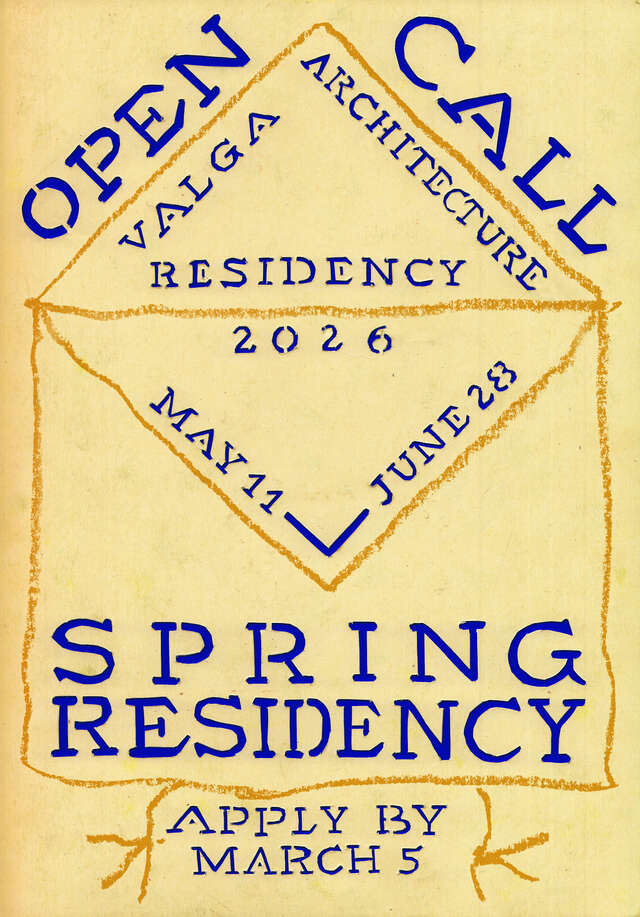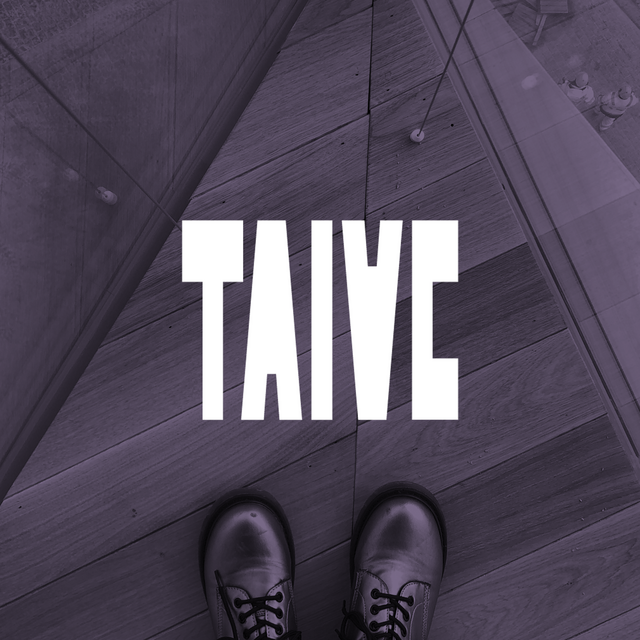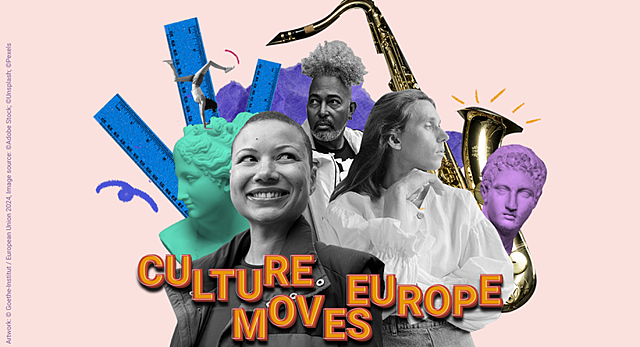Residency work opens up new perspectives and opportunities to build international networks
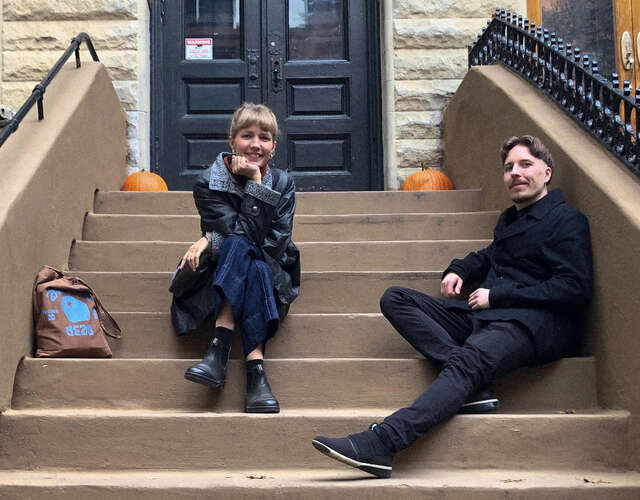
photo: Vokal
Architects Ella Kaira and Matti Jänkälä spent a month at the Finnish Cultural Institute's residency in New York. The openness and community spirit of the city's residents accelerated the Finnish architects' project, which explores the role of local communities in adapting to climate change.
On the Atlantic sandy shore, excavators reshape mounds of soil to secure the adjacent newly constructed, glossy high-rises. A stone's throw away, tall grass sways in the wind on vacant plots between small houses that residents have abandoned due to the increasing threat of floods. Far Rockaway, located far from Manhattan, is a place where both the accelerated construction driven by the real estate market and the impacts of climate change are simultaneously visible.
However, the city facing the threats of extreme weather phenomena has a significant advantage: its proactive residents. Whether it's rising rents or floodwaters, New Yorkers have historically organized themselves to defend their neighborhoods. For young architects, a month at the Finnish Cultural Institute's residency in New York provided an opportunity to closely examine the most populous city in the United States, known for its grassroots activism.
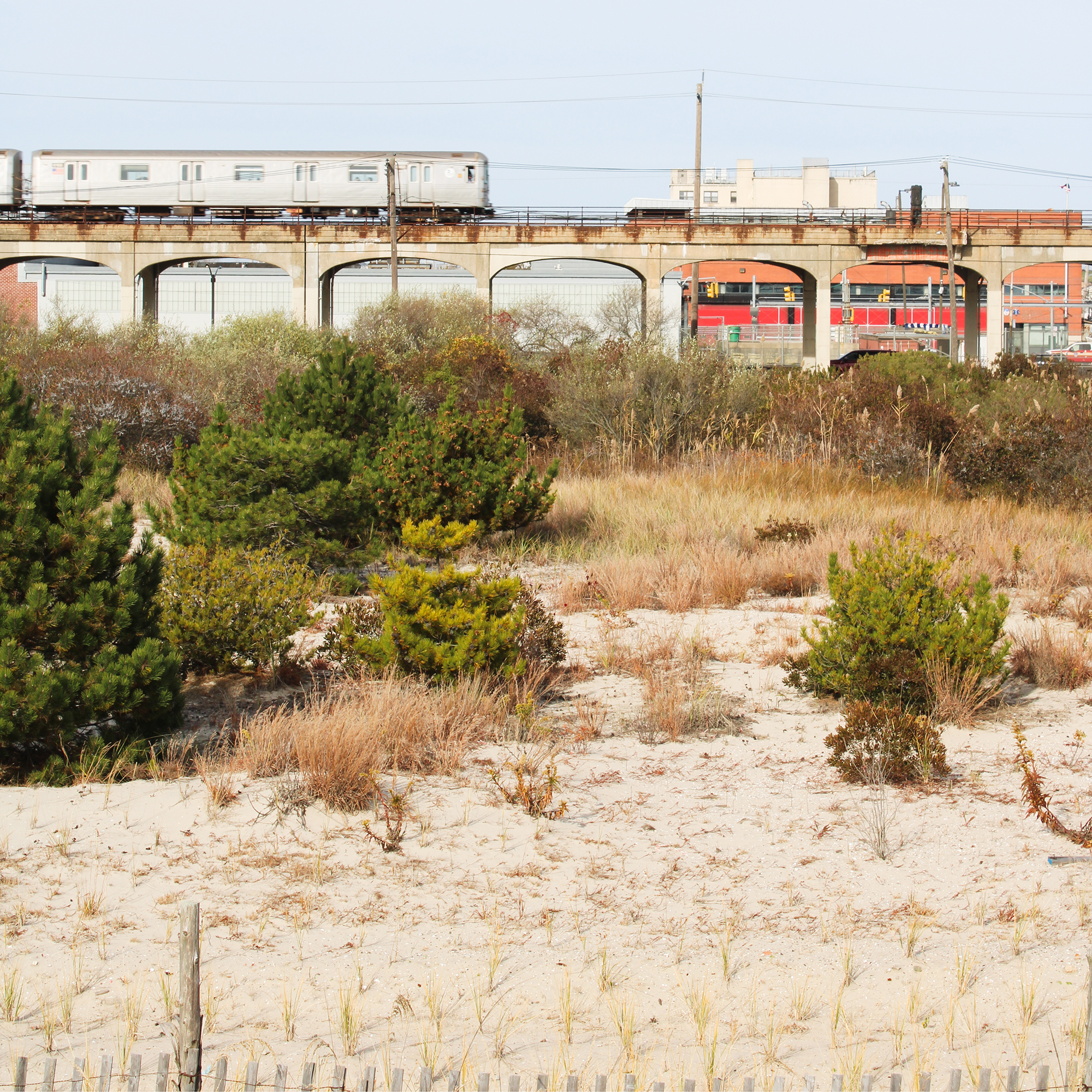
During the month, we also experienced a two-hour subway journey through the city to the threatened neighborhood of Far Rockaway, as well as witnessed the city's first housing cooperatives built by Finnish dockworkers in Brooklyn. We transported our compost to a collection point miles away from our home, and you might even have seen us in the streets of Harlem pulling a cartload of pumpkins. But we'll come back to that later.
Our residency project, "From the Ground Up," explores the role of local communities in adapting to climate change and provides a timely discussion in Finland. In New York, we interviewed NGOs, researchers, and architects, and based on their accounts, we will publish articles in our urban diary. In the spring of 2024, "From the Ground Up" will be released as a publication in both Finnish and English.
Earlier in the fall, before our departure to New York, we had established our own architectural practice, Vokal, where we aim for community-based approaches and the use of research in design. We hope to apply what we learned in New York to our design work.
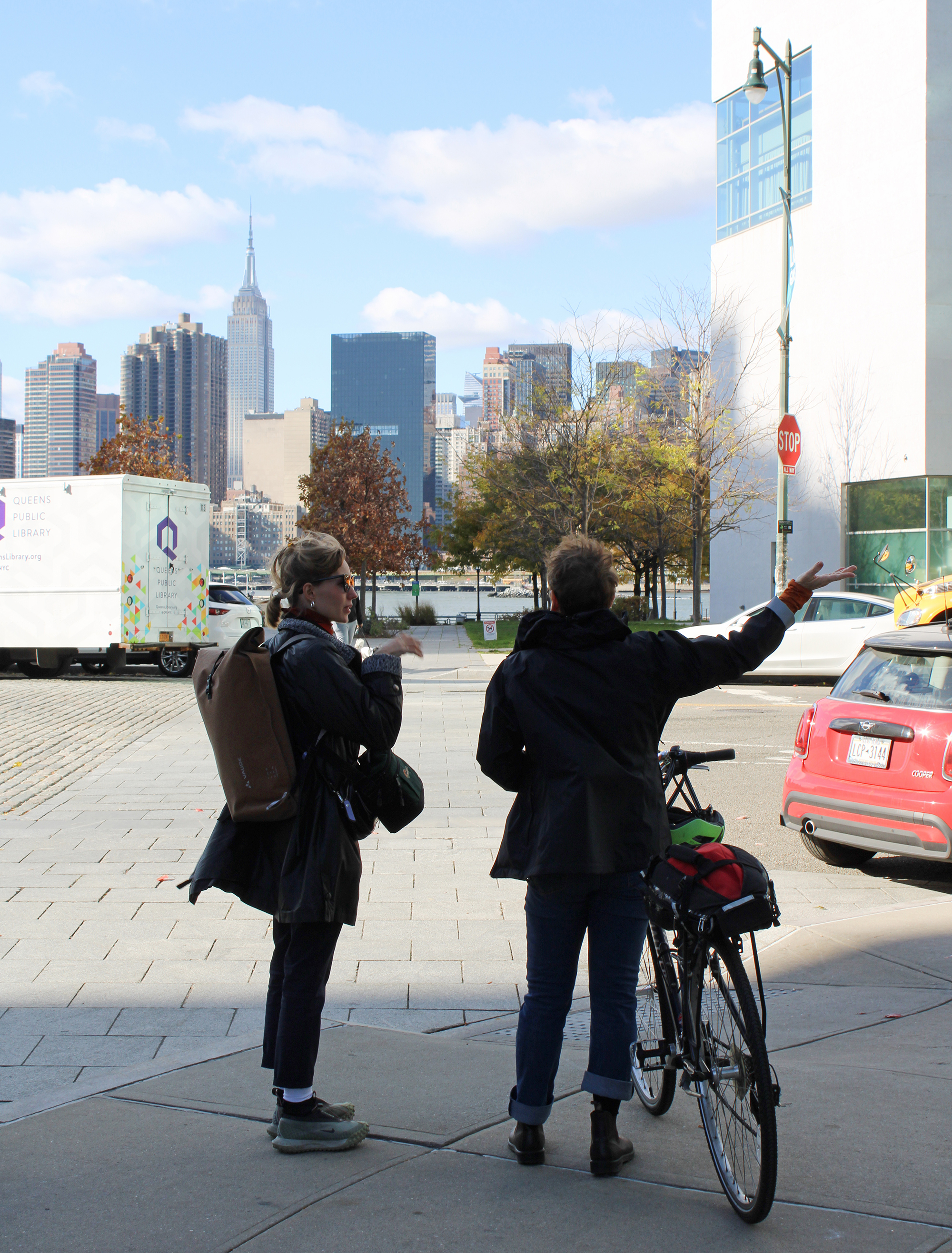
Connections to the local community
On our very first day, we discovered a cozy neighborhood garden in our new city, where a local named Monique enthusiastically told us how, in her youth, she had shoveled horse manure from nearby stables into wheelbarrows for garden fertilization. This glimpse into the West Side Community Garden, one of New York's many community gardens, immediately provided us with a connection to the locals. A week later, we had name tags on our chests and were planting tulip bulbs in a planting event.
Openness and people's inclination toward community repeatedly surfaced in New York. The enthusiastic reception was evident in our meetings: the New York Restoration Project introduced us to their project restoring the coastal reed beds in northern Manhattan, Kristen Chin of Hester Street Architecture told us about participatory approaches in the architect's profession, and Monxo López, curator of the City Museum of New York, described methods to defend one's neighborhood against large-scale investor-driven construction projects.
We met professors Rick Bell and Paul Gallay, who work on environmental issues at Columbia University, where we also presented our activities as guest lecturers as part of the Consortium for Sustainable Urbanization project. The residency was an excellent opportunity to learn about the local context and build networks outside of Finland.
Our residency in New York culminated in the "Reclaim the Triangle" workshop in front of Cooper Union, where, using a game board we designed, we engaged with passersby to explore ways to improve the area's ability to adapt to extreme weather events.
Home in Harlem
Our neighborhood, Harlem, was a crucial base for us during the month. Getting to know locals happened through conversations with neighbors or by volunteering for community organizations. We participated in the harvest celebration of Harlem Grown, an organization managing community gardens, and transported cartloads of pumpkins to the organization's Farmers Market event, where locals receive vegetables for free. We also took our month's worth of compost to Harlem Grown, which, like other organizations in New York, collects it to produce nutrient-rich soil.
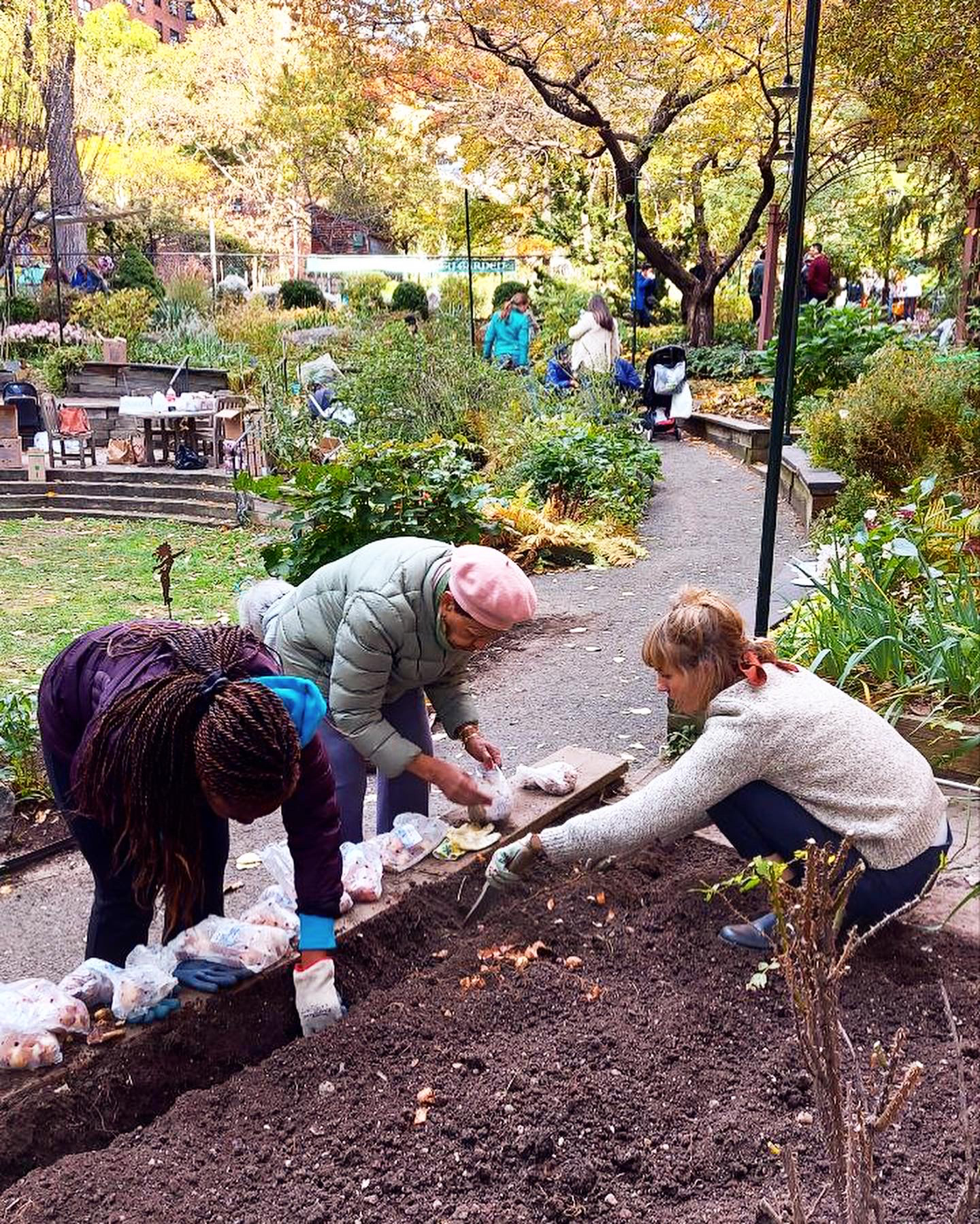
Harlem embodies the community activities and questions of climate and environmental justice at the center of our project. Historically, the area has been a focus for health-hazardous infrastructure projects and industries, and especially East Harlem is prone to floods. Community activities in the area have been ongoing for a long time, as Harlem residents have, over the decades, independently renovated neglected buildings owned by the city and property owners, established thriving gardens on abandoned plots, and advocated for the right to affordable housing.
As cities are increasingly developed according to the conditions of the real estate market, solving environmental crises or addressing the needs of local communities often receives less weight. In New York, we saw how quickly people come together—whether for a joyful evening with new friends or for organized activities aimed at defending their neighborhoods.
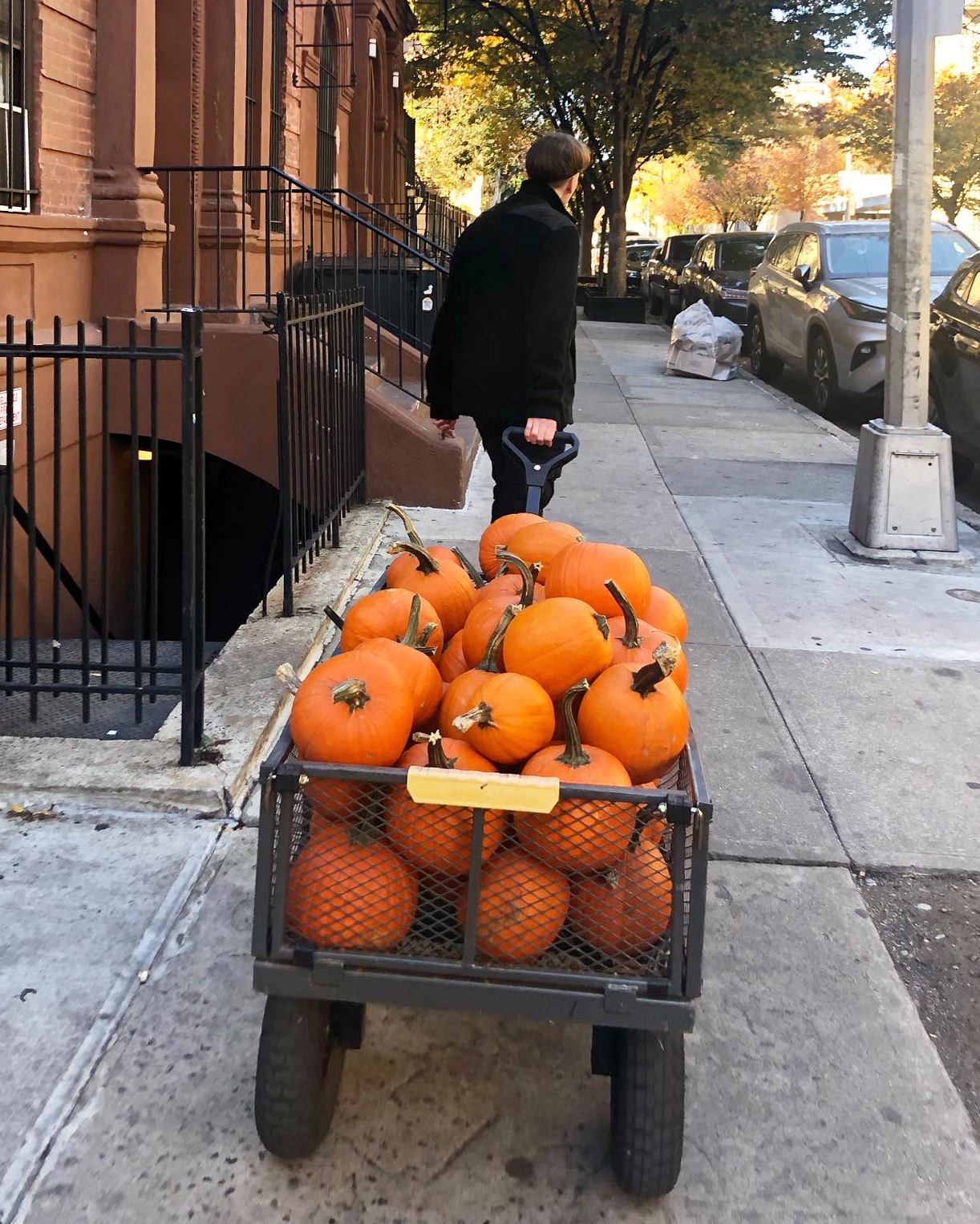
Vokal is an architectural practice founded by Ella Kaira and Matti Jänkälä, which explores the power dynamics between architecture, grassroots movements, and real estate markets. The practice's approach is community-based and research-oriented. In November 2023, Kaira and Jänkälä participated in the residency at the Finnish Cultural Institute in New York. More information about the "From the Ground Up" project can be found online: vokal.fi.
The application for next year's FCINY Architecture Residency Program in New York is open until 8 January.
